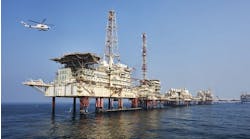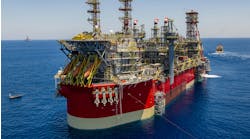Oil and gas has always been a high stakes business. Oil and gas leaders are called upon continually to rally their lifetimes of experiences and knowledge to make quick decisions. In essence, these executives are stepping up to the table and placing their leadership bets. Decisions have to take into account the safety of people, the viability of the environment, and the future of the companies they lead. Increasingly in today’s business environment for oil and gas production, they also may be risking their own personal liability. As the stakes for management decisions grow, so do the demands for leadership accountability.
Now more than ever, oil and gas leaders must cultivate a culture of broader accountability in which managers at all levels make operational decisions based on business acumen and a clear understanding of the firm’s goals, objectives, strategies, and values. Managers must feel confident in their understanding of the organization and have the proper support to make those decisions.
It is timely for oil and gas leaders to review how to create a culture of accountability. High level executives must communicate company values and goals clearly throughout the corporate ranks and coach managers to align with top-level thinking and to push back when they see either adversity or opportunity looming. All employees are empowered to bring their best to the table in organizations with a culture that encourage trust and the courage to have candid conversations at all levels.
While creating an environment of accountability starts with top executives, more and more firms in the oil and gas industry are served by Human Resources (HR) functions with knowledge and skill in proven models of leadership and organization development. They are able to aggressively get top executives involved at the level needed to build accountability. Oftentimes these HR pros turn outside the organization to find the additional expertise and resources to multiply their efforts. Industry associations and universities, for example, are ideally positioned to both lead and support cultural transformation.
By their very definition, oil and gas associations are embedded in the industry at all levels. Unlike companies, these organizations see industry needs and priorities unclouded by competitive positioning. Many associations were founded to advance operational and technical excellence, but increasingly they are promoting managerial excellence as well. American Petroleum Institute (API), for example, has expanded its technical curriculum to offer oil and gas professionals access to skill-building in management and organizational development through the SMU Cox School of Business’ Executive Education program – a leader in providing management development and leadership skills building in oil and gas.
Universities are uniquely positioned to provide research-based content that is tested and verified. And, as educators, universities are committed to building capability rather than dependency. In a true industry win-win, API and SMU Cox are working together to offer a suite of executive education programs to foster accountability among top and mid-level oil and gas leaders.
Companies must rethink their approach to training in order to use a university effectively to support organization change. Rather than seeking academic subject matter experts and a traditional classroom model, companies can engage universities to work in deeper partnership to provide learning experiences that apply directly to current business challenges and that enable managers at all levels to try new behaviors and gain comfort with them through structured feedback and accountability.
Behavior change that supports accountability is happening in the context of the impending “great crew change” -- the ushering in of the millennials as baby boomers retire. By 2012, all MBA students will be of the millennial generation. As oil and gas firms strive to be the employers of choice for this source of replacement talent, they can rely on the experience of their university partners for guidance and help.
The blend of API’s deep industry presence coupled with SMU Cox’s industry-oriented expertise in management development, organization change, and intergenerational experience is helping meet the needs of the oil and gas industry in the more complex business environment of the coming decades. Through this new model, the industry can empower a generation of leaders to calculate and respond to risk in a whole new way and place their leadership bets with confidence.John Modine
American Petroleum Institute
Frank Lloyd
SMU Cox School of Business Executive Education
This page reflects viewpoints on the political, economic, cultural, technological, and environmental issues that shape the future of the petroleum industry. Offshore Magazine invites you to share your thoughts. Email your Beyond the Horizon manuscript to David Paganie at[email protected].
Offshore Articles Archives
View Oil and Gas Articles on PennEnergy.com


